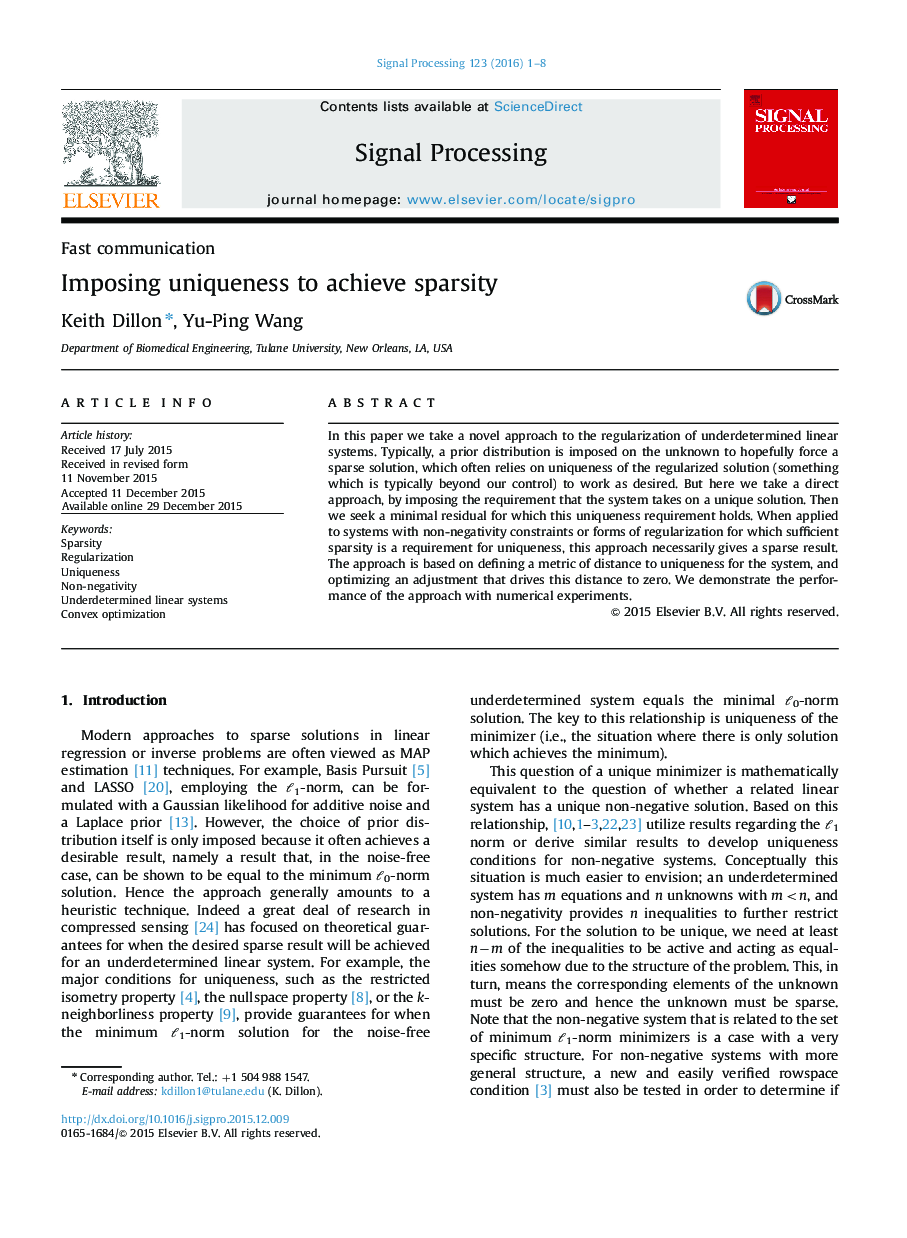| Article ID | Journal | Published Year | Pages | File Type |
|---|---|---|---|---|
| 562309 | Signal Processing | 2016 | 8 Pages |
•A novel approach to regularization is proposed which achieves a sparse solution.•Conditions for a non-negative unique solution to an underdetermined linear system are derived.•An algorithm is provided which regularizes a system such that the conditions are met.•Theoretical as well as numerical results are provided to validate method.
In this paper we take a novel approach to the regularization of underdetermined linear systems. Typically, a prior distribution is imposed on the unknown to hopefully force a sparse solution, which often relies on uniqueness of the regularized solution (something which is typically beyond our control) to work as desired. But here we take a direct approach, by imposing the requirement that the system takes on a unique solution. Then we seek a minimal residual for which this uniqueness requirement holds. When applied to systems with non-negativity constraints or forms of regularization for which sufficient sparsity is a requirement for uniqueness, this approach necessarily gives a sparse result. The approach is based on defining a metric of distance to uniqueness for the system, and optimizing an adjustment that drives this distance to zero. We demonstrate the performance of the approach with numerical experiments.
